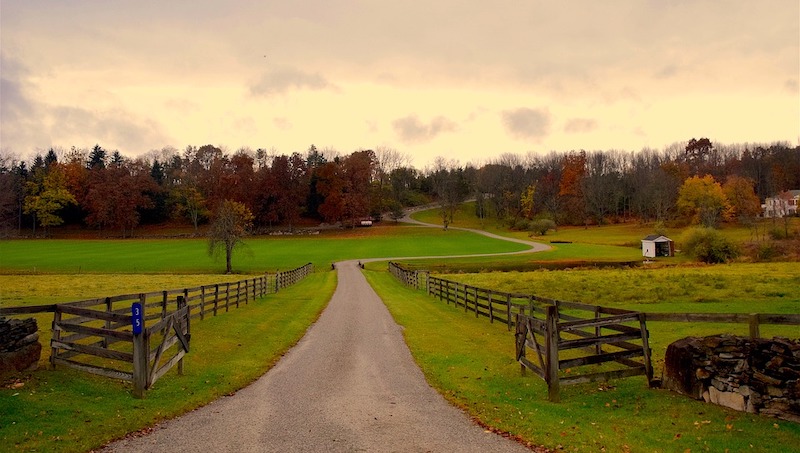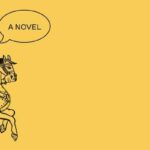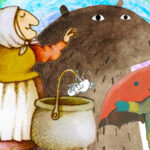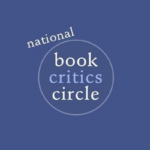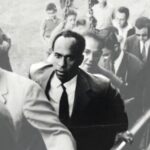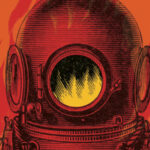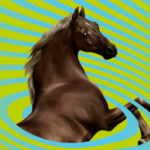Imposters, Insiders, and Interlopers: Amy Rowland on Writing About Rural America
“It doesn’t matter if you’re worthy of doing it. It matters that it’s worthy of doing.”
Imposter syndrome is the fear of being found out as a fraud, as a poser. Others may see you as over achieving and successful—two hopelessly intertwined notions, at least in contemporary American life—but you don’t see yourself that way. Imposter syndrome is largely internal. Interloping, on the other hand, is relational—a group lets you know you don’t belong. It’s not only that you know you’re an intruder; others know it too. Recently I realized I’m an interloper and not an imposter.
In the 90s, I moved to New York to be a writer. I wrote a bad manuscript about a farming family in eastern North Carolina, where I grew up. I was so boldly dumb to the ways of the world that I sent it to Russell and Volkening because I’d read “Author and Agent,” about Eudora Welty and her agent, Diarmuid Russell, who won her over with his “benevolent parasite” pitch.
Surprisingly, I got an agent, and she generously shopped my manuscript. She gave the typewritten rejections to me in a bundle. One of the first began: “Dear X, please don’t send me novels about rural people. It embarrasses me.” I’m still wondering about that misused pronoun. For me, that “it” is all: shame, class, power.
I didn’t write again for years, not another novel anyway. I’ve always been more of a continuous keeper of notebooks than a steady story writer, but I was also stung by the idea that the rural and working class people I’d grown up among were not worthy of the proud middle class prose of the 90’s novel.
Things have changed since then, but we have different problems on the same theme. Interlopers sometimes appear as characters in novels; they also write them. This is part of the argument against appropriation, and the intricate, complicated dance of writing about people who don’t look like you. The consensus so far seems to be it’s okay to do it, but not to do it badly. An author’s intentions may be better than the execution. Readers will decide, which is both fair and fraught.
There’s always the danger that where some see unflinching honesty, others will see the author as the worst sort of traitor, one who exploits their personal history to belong, the interloper turned insider. I was reminded of this recently when talking with a French friend about Annie Ernaux. My friend said she finds Ernaux mean, cruel even, and when I said weakly that Ernaux ruthlessly probes her own shame, my friend said, sharply, yes, but she takes on the voice of the oppressor.
Writing is my vocation. It doesn’t embarrass me.How not to be the voice of the oppressor. I brood on that, as I, like Ernaux, “moved class” to become a writer. Moving class meant years of feeling that I had lost a language and failed to find a new one. I was both Eliza Doolittle and my own Henry Higgins. There were long stretches when I believed it was not my place to write about the place where I was from. We were insignificant; we were without dignity; we were “embarrassing.”
It was one wrong to be from rural people, and another to try to write about them in literary fiction, where they didn’t belong and could be neither quoted nor described. For years I thought I could not write about the place I know best because it felt impossible to put plainspoken people in the bourgeois prose of the American novel. Beyond that, to do it badly would be not only personal failure but social injustice.
It was the double interloper problem: that of intruding in a literary world that rejected my milieu, and that of writing about a world I no longer belonged to. Gradually, gropingly, I began to confront my own point of view. My attachment to my own mediocrity was only ego, and a flimsy defense against failure. Through reading I came to think about writing differently: It doesn’t matter if you’re worthy of doing it. It matters that it’s worthy of doing.
As I acquired language I was growing up in a conservative country church that taught me the Bible is the literal word of God. Though I haven’t believed this since I was a child, the King James language of Ecclesiastes plays my soul like a tuning fork. Vanity of vanities, saith the Preacher, vanity of vanities; all is vanity. The deep, deep effect these passages have, detached from belief, shape my central fear, that, for me, language, literature, life are more an emotional than an intellectual endeavor.
I tell myself if I write unselfconsciously I will come closer to the directness and authority of authors I love, like Natalia Ginzburg. She suffered and felt exiled when she tried to do anything other than write stories, “invented things or things which I can remember from my own life, but in any case stories, things that are concerned only with memory and imagination and have nothing to do with erudition.”
Despite knowing “nothing about the value” of what she wrote, she was free in her work: “I am like someone who is in her own country, walking along streets that she has known since she was a child.” That gets at the doubleness of writing for me: I’m most free when I’m absorbed in writing. I’m most anxious and doubtful about releasing words into the world. It’s the looming fear of interloping, of some faceless editor deciding that worthy writing, like worthy thinking, only happens in certain zip codes.
In Christa Wolf’s The Reader and the Writer, she admonishes: “The writer we are talking about does not, therefore, let himself be pushed into the position of an outsider, a position about which almost all bourgeois writers complain, notwithstanding his peculiar way of life.” Ah, two hurts there. The writer as complainer wearing his outsider status as a bourgeois badge of honor. In this way she tells me interloping is beside the point. Elsewhere she gets to the heart of things beautifully succinctly. “The question is, have we the courage to want what prose can do.”
I want to have the courage to want what prose can do. So I choose a language, a diction, a syntax, by which I mean an ethics, and write toward what I want to know through a place that I know well. It’s worth doing. Because writing is a vocation, as Natalia Ginzburg says, “which also feeds on terrible things, it swallows the best and the worst in our lives and our evil feelings flow in its blood just as much as our benevolent feelings. It feeds itself, and grows within us.” Writing is my vocation. It doesn’t embarrass me.
__________________________________
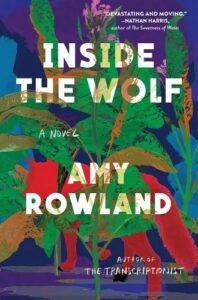
Inside the Wolf by Amy Rowland is available from Algonquin Books, a division of Hachette Book Group, Inc.

